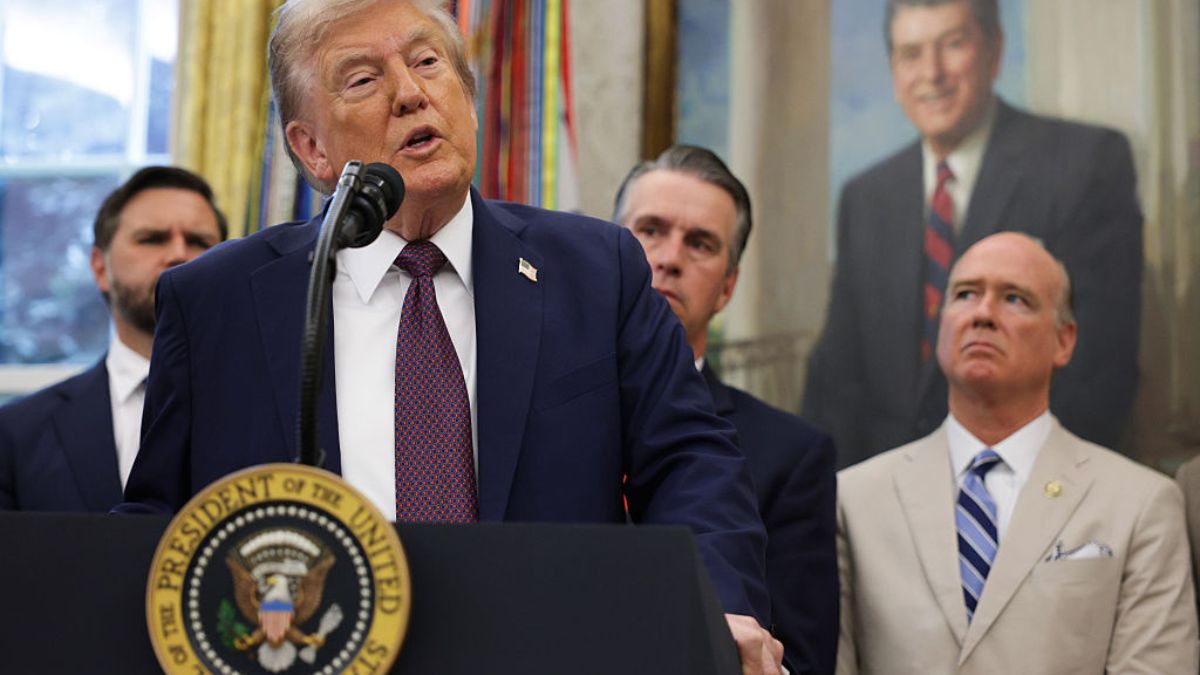
President Donald Trump joined a virtual call Thursday with Ukrainian President Volodymyr Zelensky and European leaders, demanding that Europe stop buying Russian oil to cut off funding for Moscow’s ongoing war in Ukraine. The meeting brought together leaders from the “Coalition of the Willing,” a group of about 30 countries led by Britain and France that are working to support Ukraine and create security guarantees.
During the call, Trump made it clear that Europe’s energy purchases were helping to fund Russia’s military operations. The White House said Russia received 1.1 billion euros ($1.28 billion) in fuel sales from the European Union in just one year. Trump also pushed European leaders to put more economic pressure on China for supporting Russia’s war efforts through various means, including energy purchases. This is coming from a man who recently revealed he wants to throw open Alaska’s massive resources – which often earm it the title of being the nation’s treasure as America’s energy independence depends on it – at Putin’s feet as part of their negotiations.
“Something is going to happen, but they are not ready yet,” Trump told CBS News in an interview Wednesday. “But something is going to happen. We are going to get it done.” The president expressed confidence that progress could be made despite recent setbacks in peace talks and continued fighting between Russian and Ukrainian forces.
Trump’s escalating pressure campaign shows mixed results
The call comes as Trump has been using tariffs as his main tool to pressure countries that buy Russian energy. Earlier this month, he imposed a 25% tariff on India for purchasing Russian oil, with the rate set to increase to 50% if India continues buying Russian crude. However, these measures have not stopped Russia from selling oil to India or deterred other major buyers like China from continuing their purchases.
President Trump's Truth is a https://t.co/1qTLIoBP3p headline, "Trump commits to pursuing Russia-Ukraine peace: They are "not ready yet," but "something is going to happen"" and has a timestamp of 12:22 AM EST 00:22 Military time
—
Q 22
Who controls the NG?
Why was the NG… pic.twitter.com/v5aZ78nkbaULTRA-MAGA
Dean Erickson
(@7thDean) September 4, 2025
Trump has also threatened to impose 100% tariffs on all countries that buy Russian oil and gas if Putin does not agree to peace talks. These so-called “secondary sanctions” would force countries to choose between buying Russian energy or trading with the United States. The threat represents a major escalation in Trump’s use of tariffs, which he has employed as his signature policy tool across various issues.
The pressure campaign reflects Trump’s growing frustration with the slow pace of peace negotiations. Despite his meeting with Russian President Vladimir Putin in Alaska last month, no concrete ceasefire agreement emerged. European officials have expressed concerns that Trump may be considering stepping back from diplomatic efforts if both sides do not show more flexibility soon. As White House officials told reporters, the administration may “sit back and watch” and “let them fight it out for a while” if progress stalls further.
Europe still heavily dependent on Russian energy despite sanctions
Despite years of sanctions since Russia’s 2022 invasion of Ukraine, European countries continue to import significant amounts of Russian energy. According to data from the Centre for Research on Energy and Clean Air, the top European importers of Russian fossil fuels in July 2025 were Hungary, France, Slovakia, Belgium and Spain. Hungary and Slovakia accounted for most crude oil imports, while other countries mainly import liquefied natural gas.
The European Union has reduced Russia’s share of gas imports from 45% in 2021 to 18% by June 2024, but the value of natural gas imports actually increased to $5.24 billion in the first quarter of 2025 due to higher prices. European officials argue they have made significant progress in cutting energy ties with Russia, noting that overall trade between Russia and the EU dropped by 86% between early 2022 and 2025.
The Coalition of the Willing meeting on Thursday also included discussion of additional sanctions on Russia and security guarantees for Ukraine. Zelensky posted on social media that the group agreed Russia was trying to “drag out the negotiation process and prolong the war” and that preparations were underway for a 19th package of EU sanctions. The ongoing debate over Russian energy imports highlights the challenge European leaders face in balancing energy security with efforts to isolate Moscow economically, even as Trump’s administration pursues increasingly aggressive policies to pressure Russia and its trading partners.








